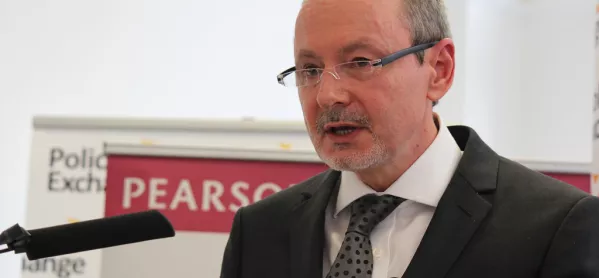Last week, a Twitter storm blew up over a question in our Edexcel GCSE maths paper, which some students found difficult. The Hannah’s Sweets story was quickly picked it up in news bulletins and no doubt became the subject of a fun test in the office - a nostalgic moment for people to check if they could remember the maths they’d learned for their own GCSE or O-level.
It also became a topic hotly debated by parents, relatives and friends (my own included) whose children had sat the paper.
The power of social media to give young people a voice is heartening, but the one concerning part for me is that it gave many the idea that there was something wrong with the question.
In fact it was a good question; a question aimed at students aspiring to an A/A* grade and tested not just arithmetic computation, but mathematical literacy. I’m pleased to say that not only have a large number of excellent maths teachers said this, but so have a great many students.
Mathematics is not just an increasingly important subject, but many would say, a beautiful subject too; a beauty that only a deeper understanding begins to reveal.
Don’t get me wrong; I have a lot of sympathy with students for whom the burden of exams has become excessive, and it’s a burden whose weight needs debating. Social media is to be welcomed since it helps the debate, but it provides no guarantee of balance.
The fact is that in any exam worth its salt, some questions will be more challenging than others. We have a duty to students to ensure that the qualification they earn commands respect from universities, colleges and employers. Papers are set at the appropriate level to test the full range of students’ abilities.
In the event that any one paper turns out to be more or indeed less challenging than usual, our marking and grading process always ensures students are awarded the grades they deserve. As an awarding body we of course need to help schools to prepare their students well for the more challenging questions as well as those less so.
But perhaps the most important thing we can all do, is to put the purpose of exams into a wider perspective. Exams are not a binary predictor of success or failure in life, but rather a snapshot of knowledge at one point in time. A better predictor of success is aspiration and hard work. And the resilience to say, if at first I don’t succeed, I’ll try again.



